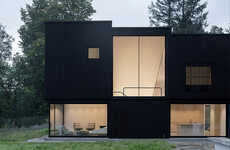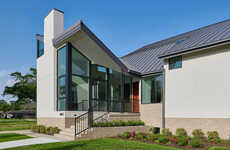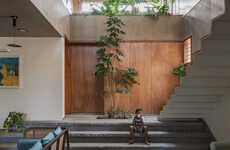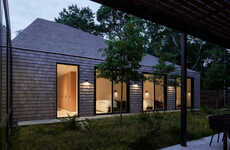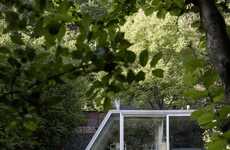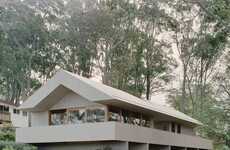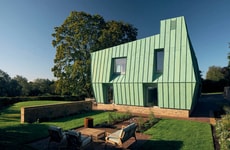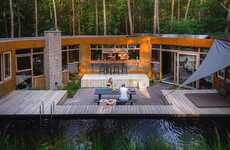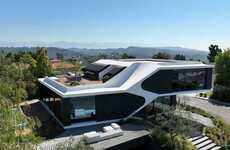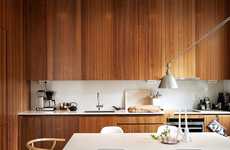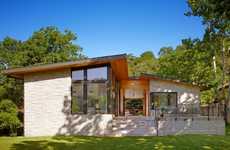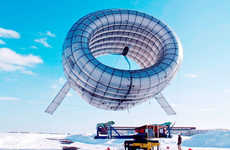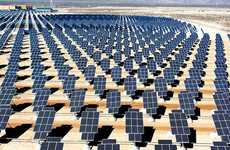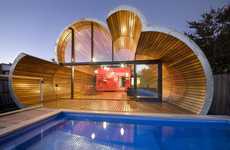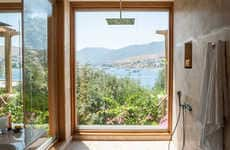
The Sunlighthouse Was Made Asymmetrically to Maximize its Eco Efficiency
Amelia Roblin — December 23, 2013 — Eco
When you first look at the Sunlighthouse, you might wonder how the architects arrived at such an irregular form. Well, the whimsical asymmetry that this dwelling embodies is the result of some very thoughtful decisions made to meet the ultimate goal of producing the country's first CO2 neutral single-family home.
Most notably, the pitched roof of the sustainable Austrian abode takes a different slope on each side, with one shingled plane extending far lower than the other. This maximizes the area for the ideal placement of solar panels. Many unusually arranged windows also punch out of the locally sourced timber cladding, creating penetrable surfaces that amount to nearly half of the floor area inside. The interior of Juri Troy Architects' Sunlighthouse is five times brighter than the average domicile.
Most notably, the pitched roof of the sustainable Austrian abode takes a different slope on each side, with one shingled plane extending far lower than the other. This maximizes the area for the ideal placement of solar panels. Many unusually arranged windows also punch out of the locally sourced timber cladding, creating penetrable surfaces that amount to nearly half of the floor area inside. The interior of Juri Troy Architects' Sunlighthouse is five times brighter than the average domicile.
Trend Themes
1. Sustainable Architecture Designs - Unique and thoughtful architectural designs which aim to create eco-friendly and sustainable homes.
2. Asymmetrical Roofing Designs - Structural roofing designs which maximize the placement of solar panels and reduce CO2 emissions.
3. Penetrable Surface Construction - Using windows and cladding materials to increase natural light and energy efficiency in residential and commercial buildings.
Industry Implications
1. Construction - There is a great opportunity in the construction industry to develop and implement sustainable architectural designs to reduce carbon emissions.
2. Architecture - Innovative architectural designs that prioritize sustainability and energy efficiency could disrupt the traditional architecture industry.
3. Renewable Energy - The renewable energy industry can capitalize on the opportunity to provide solar and other alternative energy sources alongside sustainable architectural designs.
6
Score
Popularity
Activity
Freshness

